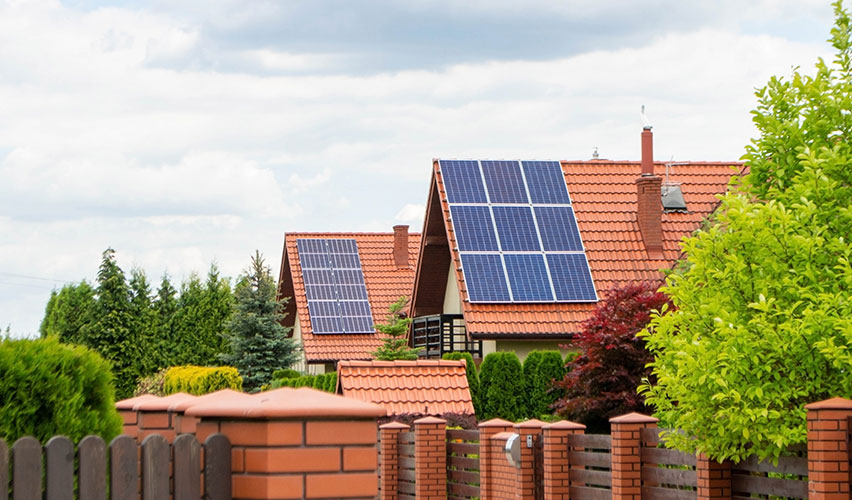
Top NEW ZEALAND INSTALLERS. NZ No1 SOLAR COMPARISON SITE
When you’re looking at Solar, we will put you in touch with two of New Zealand’s top Installers.
These companies have been vetted and are all part of the Sustainable Energy Association of New Zealand
THE COSTS OF GOING SOLAR
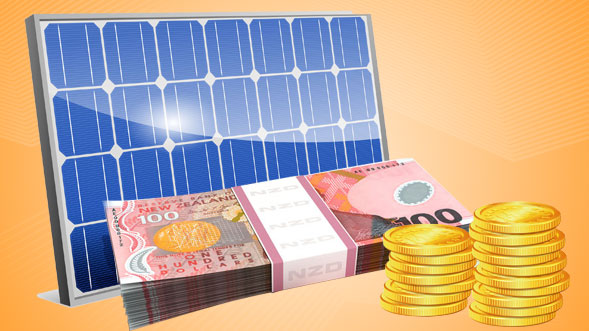
Solar panels and solar power energy systems have only gotten more affordable as the years have gone on. Just eight years ago, a 3kW system would cost you around $40,000, while today the same system could be installed for less than $9,000. As equipment and processes become more developed, and more efficient, prices drop, too. Home size, energy needs and available rooftop space also factor into the cost of your system.
Grid tied systems maintain your relationship with the power company, for better or worse, but allows you to sell any excess solar energy generated by your home system back to the grid. So while you will be paying the power company for any energy you use when your solar isn’t generating enough energy, you’ll also get a credit for the kilowatts you sell back to the grid.
You can minimise how much energy you use from the power company by employing energy-saving tips, installing energy-efficient appliances and completing easy home improvements like adding weather stripping to keep cool air so your air conditioner doesn’t have to work as hard.
Owning your own solar power energy system that includes battery storage means you may not have to rely on the power companies at all. Each year, electric utilities may rise the price you’re paying for energy, and your monthly bill will continue to increase. But if you have you own system, your costs are no more than your monthly financing costs and are typically paid off within seven years. Once your solar energy system is paid off, your energy bill is entirely eliminated.
SOLAR AND YOUR NEW ZEALAND POWER COMPANY
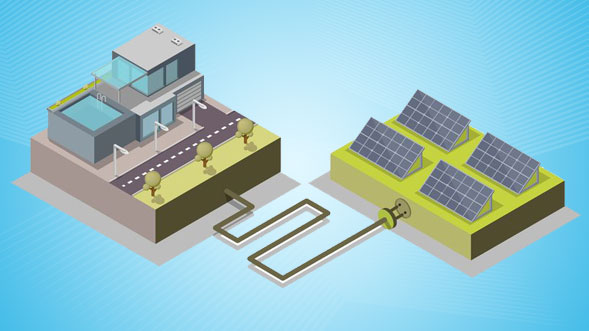
New Zealand power companies are in control of how much you pay for energy from the electric grid. And they typically raise that rate in most cases by up to 5%, even though the Governments Electricity Price Review was established to lower customer pricing, somehow customers seem to get left behind. Going solar is taking your power into your own hands, and not only removing your dependence from the grid, but also freeing you from the unpredictable and ever-rising costs of traditional energy.
When you go solar, there is a way you can make money back by staying tied to the power company electric grid. When your home generates more solar energy than it needs, whether by increased capacity or by using less energy during peak times through energy efficiency measures, you can sell that excess energy back to the power companies. The buy-back rates for solar power range from 7 cents to 12 cents.
The most effective way to use your solar power energy system is to focus on using the most energy during the time of the day when the sun is out. You can use appliances that have built in times, or add timers to your appliances, so that they turn off when the sun goes down or only stay on for the time you need them and are actively using the appliance. Battery storage is also a big part of being able to rely solely on solar energy for your home. The batteries store the sun’s rays during the day for your home to use at night or when it’s cloudy, or any other time that your panels may not be generating enough energy for your needs. While you don’t need solar batteries to sell back to the grid, it will make it more likely that you have excess energy to make the exchange worth it.
Approximate Solar Installation Costs
COUPLE
- Stay at home most of the time
- Beginners want to expand later
Less than $12,000
FAMILY
- Small Family
- Can sell or store power during the day.
$12,000 - $17,000
LARGE FAMILY
- Large Family
- Can sell or store power during the day.
- Work from home
$17,000 - $22,000
Note: these costs do not factor in rooflines, sun allocation, or any further issues that may arise.
How Solar Works
Before you go investing in solar for your home, it’s important to understand how it works. Solar energy systems generally are made up of several components, though only a handful because while the concept may feel extra science-y, it’s actually pretty straightforward.
Solar panels are made up of solar cells, which grab the sun’s rays and absorb their energy. That energy is sent to an inverter that can take the direct current generated by the solar panels and turn it into alternating current our homes can use. The choice of your solar inverter may have an impact on your choice of panels.
That energy is sent to your home so you can turn on the lights, heat up your food, watch some TV, or do whatever it is you need to do! And energy you don’t use can be stored in batteries, and used later at night or when it’s cloudy. How much battery storage you’ll need depends on many factors. You can get one or several batteries of various capacity and longevity, to complement your build.
You can also chose to install solar panels only, without battery storage. That would mean your home is using as much solar energy as it can generate during the day, and at night your home switches to using power from the grid.
When your solar energy system is installed, your technician will also assess your roof style and type, its position towards the sun, and any obstacles that may cast shadows like trees or nearby buildings.
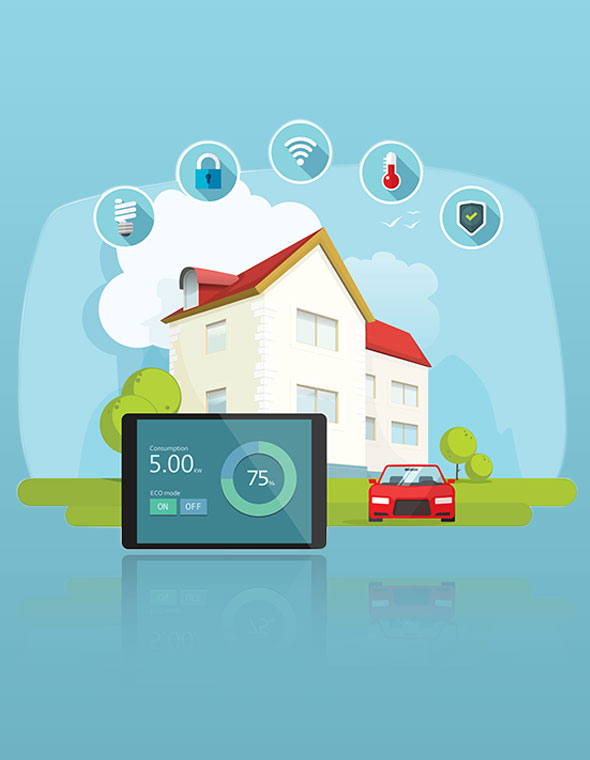
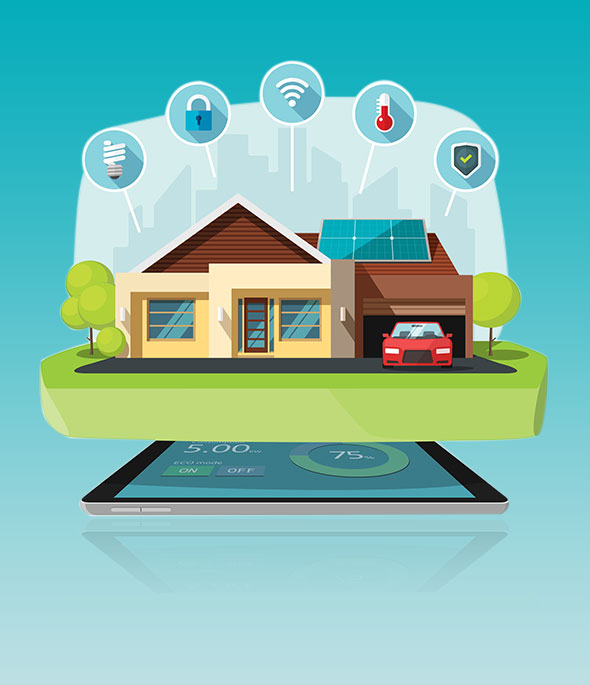
Choosing the Right Partner
When looking for a partner to help you with your solar energy system, there are a few things to consider. You’ll want to review the quality of the materials used for the systems, and any options or upgrades available. The quality of the materials has a direct impact on how long-lasting your system is, how often it must be maintained, and how smoothly it will work. There are places to optimize your budget and places you’d rather not cut corners.
Ask the company about past installs that are similar to yours and that are in the area you live in. See if there are any photos of the installs—if they’re proud of their work, there should be some photos to help you feel more secure in your decision. Consider how long the company has been around and how many installs they have completed in your area.
Talk to your prospective solar partner about any questions you may have about solar energy—how it works, what’s involved in the upkeep, how long it should last—and see if they know their stuff.
Who you hire to take you through the process of adding solar to your roof can also affect how well your panels generate energy. A good technician and a good team will consider factors beyond your energy use, like the material of your roof, your position towards the sun, and your current energy needs.
How much can I save?
Solar energy is great for the environment, but it’s also good for your wallet. Especially when it’s designed with all of your energy needs in mind. With the right solar energy installation, your monthly energy bills could be 40-70% lower than what you’re paying today. And your solar energy system could pay for itself in just seven to 10 years.
See how much you can save with rooftop solar panels installed on your New Zealand home!
Return on Investment (ROI)
The average solar energy system will pay for itself within seven to eight years. That leaves nearly two-thirds of the life of the solar energy system to generate clean, affordable energy for you, because most solar energy systems have a 25+ year lifespan.
While it may seem like the upfront costs are on the high side, the reality is you will be replacing your standard electric bill with the payment on your solar energy system. In many cases, this payment is lower than what you may have been paying the power company. And the best part is that you own your solar energy system, and once it’s paid off, you own all the energy it generates free and clear. Get familiar with the rate you pay for energy now and the average monthly cost of your current electric bill. Knowing this gives you a good baseline for the monthly payment you’d be comfortable with when determining your financing.
Adding renewable energy like solar to your home can also increase its value. As new buyers look more and more for that eco-sustainable lifestyle, solar panels are likely to be a fantastic deal breaker when it comes to selling your home for a little bit more than you otherwise would.
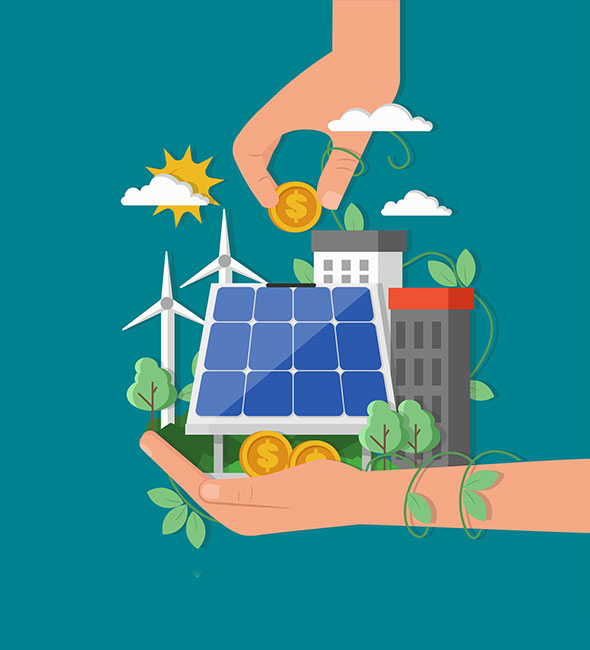

What is a hybrid system?
There are two kinds of solar energy for the home that you can consider. One is the grid-tied solution, where your power company still plays a role in what you pay each month and how much energy you pay for. While it offers some freedom and flexibility in your home power use, it still leaves you at the whims of the power companies who may raise rates yearly, often up to 5%. While this option does allow you to sell excess energy back to the grid, that price is not set in stone, either.
Consider the off-grid solution if your rooftop and home can support it. This would involve enough solar panels and battery storage to power your home 24/7. You would no longer experience any grid-related outages or flickers. You don’t have to worry about price increases or buy-back rates changing. And once your system is paid off, you own your clean solar energy, 100%.




